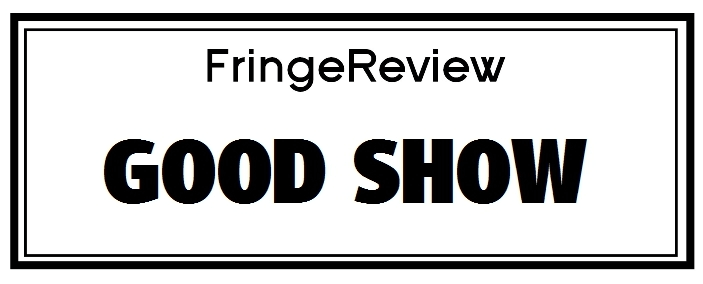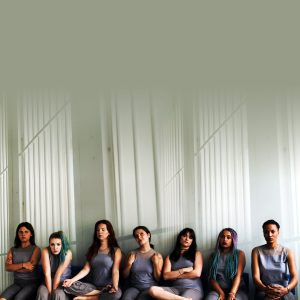Camden Fringe 2017

Low Down
Showing for just two nights at The Cockpit, this play takes on big issues. Devised by an all female team (the seven actors and Laura Hopwood as director), and set in the near future, it shows us seven diverse women taking part in a programme – a self help group – that seeks to rehabilitate them into model citizens. It seeks to explore their experiences, including the ‘micro-aggressions’ they are subject to, simply because they are women.
Review
This devised piece is based on a strong overall premise that provides a great opportunity to explore its issues.
The simple staging works well with audience on three sides of the spacious Cockpit theatre; we are brought into the space of the ‘programme’ with subtle lighting and a nicely menacing drone. Good use of the space continues, with a simple projection to show the transition of time through the fourteen days of the ‘self help’ programme, and with a nice touch in some subtle action on the theatre’s balcony towards the end of the show.
Strong artistic choices are made throughout, including as the play closes. The resetting of the programme’s calendar to Day One, and foregoing the curtain call – with the audience discomfort that ensues – seem to suggest we might be joining the programme ourselves.
The characters were distinctive, almost caricatures, representing the full spectrum of the ‘female malfunction’ or the ‘Seven Sins’. Each finds an opportunity to declare themselves – for example Sam (Alex Kristoffy) tells us how she is missing sex after a 14 day abstinence, thus showing us ‘lust’.
There are some strong performances from a nicely balanced cast made up of Alex Kristoffy, Amina Eisner, Anna Brooks-Beckman, Faye Derham, Lekhani Chirwa, Rebecca Robinson, Robin Kristoffy. It is hard to pick out individuals in a piece that is fundamentally collective, but Robin Kristoffy’s Eli (as the outsider and catalyst) felt most fleshed out, Derham’s drug addict Lisa nicely underplayed and Brooks-Beckman’s irreverent goth mother Lily, the most layered.
Several of the cast are experienced ensemble players, and the set-piece ensemble devices provided some of the most powerful moments – for example creating a strong sense of medicalised routine; offering a poignant acapella round of singing; and – a favourite moment – a diverse ‘chorus’ of characters, each embodying the specific physicality and ‘business’ of their characters, dotted around the stage.
Sound effects and music also added to the surreal backdrop, although a choice other than ‘Land Of Hope and Glory’ as the daily wake-up music might have felt more original.
It’s a playful piece, considering the subject matter, and this was nicely judged. Brooks-Beckman’s clowning experience was palpable in the physicality she brought to her character, and there is much dry comedy, for example in the course participants’ derision of the banal positive thinking exercises on offer to the group.
At the other end of the theatrical spectrum, the more intimate duologues (often in split scenes with other business on stage) were the most emotionally revealing and intriguing. We had hints of other lives – a family caught by conflict in Syria, a mother with torn loyalties, a woman coming out of a relationship, another struggling with addiction; these stories clearly informed the performances, but their true gravity and the resulting damage were never really revealed.
It’s a tough job to pull off such divergent styles successfully in one show, especially a short one, and the piece might have benefited from some stronger choices here.
It gave itself a lot to live up to: described as “a dark comedy”, “theatre’s Black Mirror”, and a piece that explores “experiences that are happening to women on a day to day basis including equality, race, rape culture, social expectations, politics, women’s position in society now vs the future”. This is vital material for theatre – especially all female theatre – to explore. Seven touches but never quite mines the seam; in bringing us “topics that can hit a bit too close to home”, it never felt uncomfortable or revealing enough.
This was a short run, with a limited rehearsal period (often the case with collectives of people who are all busy in their own right), and if it had honed in on a smaller area of its ambitious agenda, the collective might have pulled off something really special.
As it is this is brave, intriguing and entertaining work that celebrates women and the collective experience.




















































